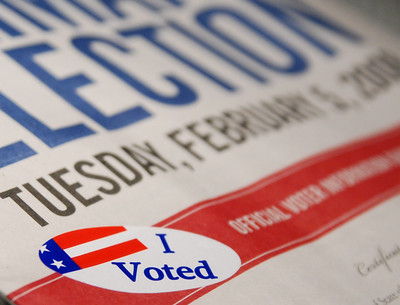The 2024 Massachusetts Election officially starts tomorrow, Saturday, October 19! Thanks to COVID-era reforms, voting is easier than ever in Massachusetts. You can vote by mail with no excuses, vote in person during the early voting period, or vote on election day. For more information on how and where to vote, visit the Secretary of the Commonwealth’s website or contact your local election official, typically your City or Town Clerk.
As usual, all nine representative seats to the United States Congress, every seat in the Massachusetts General Court, and the Governor’s Council are up for election. In addition, this year is the Presidential election, which means that the state’s slate of Presidential Electors is up for election. Every state is given a number of electors equal to their total number of Representatives plus their two Senators, so Massachusetts has 11 electoral votes. Each political party that qualifies for the ballot submits a list of individuals pledged as electors who will perform the actual election on Wednesday, December 17. In theory, the electors can elect who they want, but several states including Massachusetts have laws requiring them to vote for who they are pledged and they tend to be high-ranking party officials. For example, in 2020 former President Bill Clinton was an elector in New York, and sitting governor Kristi Noem was an elector for South Dakota. This year in Massachusetts, there are six slates of electors, the two major parties, three minor party slates, and an independent slate. Our Class 1 Senate seat is also up for election, as Senator Warren’s second term expires at the end of this Congress. She is running for re-election against Republican John Deaton.
The last items statewide are five initiative ballot measures. First, Question 1 would explicitly empower the State Auditor to audit the General Court. Question 2, meanwhile, proposes to remove the MCAS test as a requirement for graduation from high school and replace it with satisfactory completion of the high school’s course load. Next, Question 3 concerns the rights of Uber and Lyft drivers. There has been a growing battle over whether these drivers should be classified as “employees” subject to the rights and restrictions thereof, or “independent contractors” that lose many of the protections an employee has at the trade-off of more independence from those that hire them. The ballot measure extends the right to collectively organize that employees have under existing federal and state law to these drivers without defining them as employees or independent contractors. Question 4 legalizes psychedelics in much the same way as marijuana by allowing individuals 21 or older to grow, possess, or use a limited group of psychedelics. Finally, Question 5 would gradually increase the tipped minimum wage from $6.75 an hour to the full minimum wage of $15 an hour, while creating new laws for tip-pooling.
Depending on where you live, you might have more ballot questions and could have more officials up for election. No matter where you live, how you vote, or who you’re voting for, we encourage everyone to vote, taking part in the 248-year-old American experiment.






